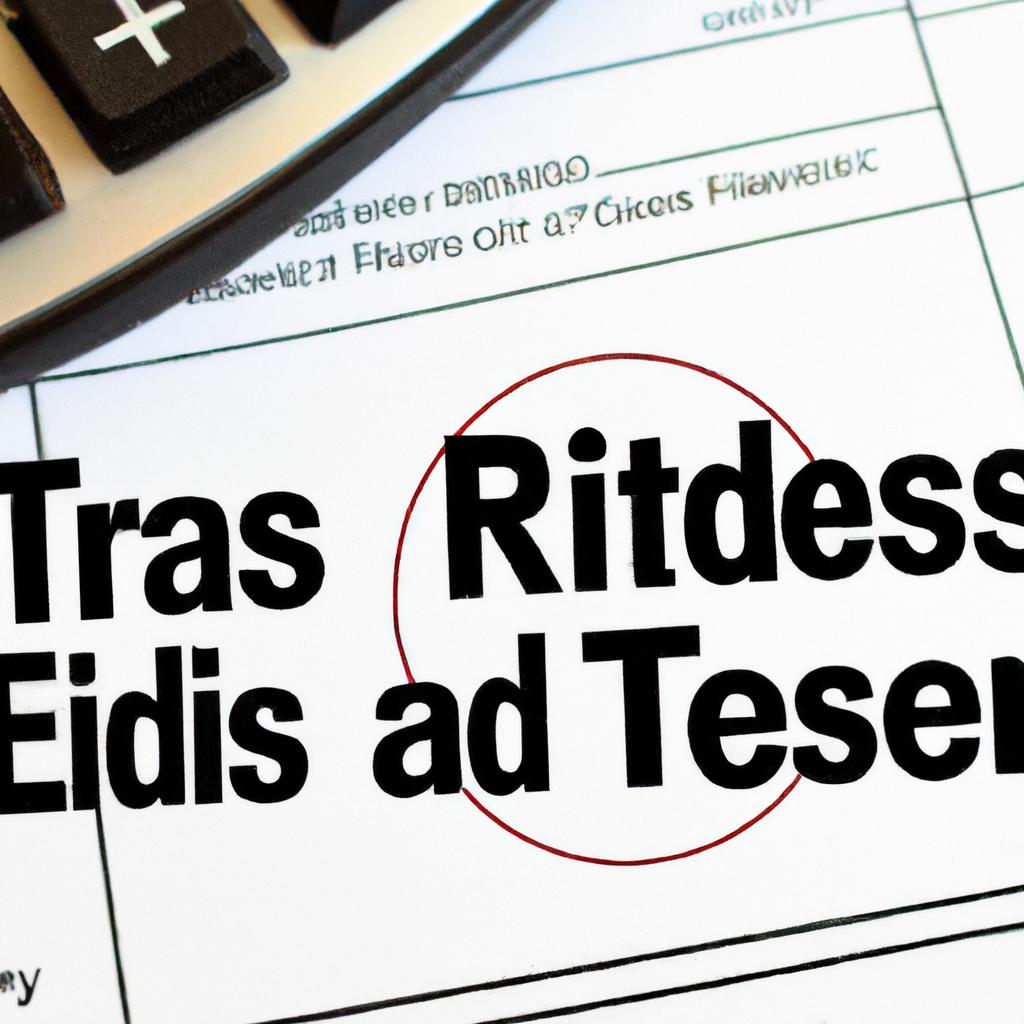As an experienced lawyer specializing in estate planning and probate, I often encounter clients facing the perplexing question of how to navigate the complexities of inheritance tax on their parent’s house. In today’s ever-changing legal landscape, strategically planning for the transfer of property can make all the difference in safeguarding your loved one’s legacy. Join me as we explore the ins and outs of inheritance tax avoidance and unravel the mysteries of preserving your parent’s home for future generations. Let Morgan Legal Group guide you through the intricate maze of Wills, trusts, and elder law, ensuring your family’s financial future remains secure.
Strategies to Minimize Inheritance Tax Liability on a Parent’s House
One effective strategy to minimize inheritance tax liability on a parent’s house is to transfer the property into a trust. By placing the house in a trust, you can potentially reduce the overall value of your parent’s estate, therefore decreasing the amount of inheritance tax owed. Trusts also offer the benefit of avoiding probate, which can be a lengthy and costly process.
Another strategy to consider is making use of the annual gift tax exclusion. Each year, you can gift up to a certain amount to an individual without incurring gift tax. By gradually transferring ownership of the house to heirs through annual gifts, you can reduce the value of the estate over time. This can help lower the potential inheritance tax burden on the property when the time comes. Remember to consult with a qualified estate planning attorney to determine the best approach for your specific situation.
| Strategy | Description |
|---|---|
| Transfer property to a trust | Reduces estate value and avoids probate. |
| Utilize annual gift tax exclusion | Gradually transfer ownership to heirs to reduce estate value. |

Utilizing Estate Planning Tools to Reduce Tax Burden on Inherited Property
When it comes to inheriting property from your parents, navigating the complexities of estate taxes can be overwhelming. Fortunately, there are several estate planning tools that can help reduce the tax burden on inherited property. One effective strategy is to set up a trust, such as a revocable living trust, which allows you to transfer ownership of the property to the trust while still maintaining control over it during your lifetime. By doing so, you can potentially avoid probate and minimize estate taxes upon your passing.
Another useful tool for reducing tax liability on inherited property is to make use of the annual gift tax exclusion. By gifting a portion of the property to your heirs each year, you can gradually transfer ownership and reduce the overall taxable value of the estate. Additionally, working with an experienced estate planning attorney can help you identify other strategies, such as taking advantage of step-up in basis provisions or utilizing charitable giving as a way to offset tax obligations on inherited property.

Understanding IRS Guidelines for Estate Taxes on Real Estate Assets
When it comes to navigating the complex world of estate taxes on real estate assets, it is crucial to understand the guidelines set forth by the IRS. In order to avoid inheritance tax on your parent’s house, there are several important factors to consider. One key strategy is to make use of the annual gift tax exclusion, which allows you to gift up to a certain amount per year without incurring gift tax. By strategically gifting portions of the property over time, you can reduce the overall value of the estate and minimize tax liabilities.
Another effective method for avoiding inheritance tax on real estate assets is to establish a trust. By transferring ownership of the property to a trust, you can ensure that it is not included in your parent’s taxable estate upon their passing. This can help to protect the value of the property and reduce the tax burden for your loved ones. Consulting with an experienced estate planning attorney can help you navigate the complexities of estate taxes and develop a comprehensive plan to protect your assets for future generations.

Crafting a Comprehensive Plan with Legal Professionals to Preserve Family Wealth
When it comes to preserving your family’s wealth, a comprehensive plan is essential. By working with legal professionals, such as the experts here at Morgan Legal Group, you can craft a strategy that will help you avoid unnecessary taxes and ensure that your assets are passed down to future generations.
One common concern for many individuals is how to avoid inheritance tax on their parent’s house. This can be a complex issue, but with the right guidance, it is possible to minimize the tax burden. Some strategies that may be helpful include creating a trust, making lifetime gifts, or setting up a family limited partnership. By discussing your specific situation with our team of experienced attorneys, we can help you develop a plan that aligns with your goals and protects your family’s wealth for years to come.
Q&A
Q: What is inheritance tax and why is it relevant to my parent’s house?
A: Inheritance tax is a tax that is imposed on the property and assets passed down to you after someone’s death, including your parent’s house.
Q: How can I avoid paying inheritance tax on my parent’s house?
A: There are several strategies you can consider, such as setting up a trust, gifting the property before your parent’s death, or utilizing the annual gift tax exclusion.
Q: Are there any limits to the amount of money I can inherit tax-free from my parent’s house?
A: Yes, there are limits to the amount of money you can inherit tax-free, which vary depending on your relationship to the deceased and the state in which you live.
Q: What are some other ways to reduce the impact of inheritance tax on my parent’s house?
A: You can also consider making charitable donations, investing in life insurance, or seeking professional advice to help minimize the tax burden.
Q: Is there any risk involved in trying to avoid inheritance tax on my parent’s house?
A: While there may be risks associated with certain strategies, such as tax evasion or improper estate planning, consulting with a financial advisor or estate planner can help you navigate these complexities.
Insights and Conclusions
In conclusion, avoiding inheritance tax on your parent’s house can be a daunting task but with careful planning and the right advice, it is possible to navigate through the complexities of estate planning. By exploring options such as gifting, setting up trusts, or seeking professional guidance, you can ensure that your loved ones are not burdened with unnecessary taxes. It is important to remember that each situation is unique and may require a personalized approach. Ultimately, being proactive and informed can help you secure a smooth transition of assets to the next generation.
 As the saying goes, “death and taxes are the only two things in life that are certain”. And when it comes to dealing with the passing of a loved one, the last thing anyone wants to deal with is the complex and often expensive process of inheritance tax on their parent’s house. Fortunately, there are ways to avoid or minimize inheritance tax on a parent’s house, and in this article, we’ll explore those options to help ease the burden during a difficult time.
As the saying goes, “death and taxes are the only two things in life that are certain”. And when it comes to dealing with the passing of a loved one, the last thing anyone wants to deal with is the complex and often expensive process of inheritance tax on their parent’s house. Fortunately, there are ways to avoid or minimize inheritance tax on a parent’s house, and in this article, we’ll explore those options to help ease the burden during a difficult time.
Firstly, let’s define what inheritance tax is and how it applies to property. Inheritance tax (also known as estate tax in some countries) is a tax imposed on the transfer of assets from a deceased person to their heirs or beneficiaries. This includes not just money, but also property, investments, and other assets that may be passed on to the next generation.
So, how does this apply specifically to a parent’s house? Well, in most cases, a parent’s house will be considered part of their estate and therefore subject to inheritance tax upon their passing. The tax rate varies depending on the value of the property and the state or country in which it is located. Typically, the higher the value of the property, the higher the tax rate will be.
Fortunately, there are several ways to minimize or avoid inheritance tax on a parent’s house. Let’s take a closer look at some of these options:
Gift the house to your children before you pass away: One way to avoid inheritance tax on a parent’s house is to gift it to your children while you are still alive. This means that the property will no longer be part of your estate and therefore not subject to inheritance tax. However, there are some important considerations to keep in mind with this approach. Firstly, the gift must be genuine and not done simply for the purpose of avoiding tax. Secondly, there may be gift tax implications, depending on the value of the property. It’s essential to consult with a tax professional and seek proper legal advice before making any decisions in this regard.
Utilize the “Annual Exclusion”: In the United States, there is an annual gift tax exclusion of $15,000 per individual, meaning you can gift up to $15,000 worth of assets to anyone without incurring any tax implications. This means that if the house is worth less than $15,000, you can gift it to your children without any tax consequences. If it is worth more, you can still gift a portion of the property each year until it is entirely gifted without incurring any tax.
Sell the house to your children: Another option to minimize inheritance tax on your parent’s house is to sell it to your children at a fair market value. This would transfer the ownership of the property to them, and it would no longer be considered part of your estate. However, there are several potential downsides to this approach. Firstly, your children would need to have the financial means to purchase the property, which may not always be the case. Additionally, there may be income tax implications for you as the seller. As always, seek professional advice before making any decisions.
Set up a trust: Another useful tool for minimizing inheritance tax on a parent’s house is to set up a trust. A trust is a legal entity that holds assets for the benefit of designated beneficiaries. In this case, you can transfer ownership of the house to the trust, and it would no longer be considered part of your estate. When done correctly, this can be an effective way to avoid inheritance tax. However, setting up a trust can be a complex and costly process, and it’s essential to seek professional legal and financial advice before proceeding.
Make charitable donations: Another way to minimize inheritance tax on a parent’s house is to make charitable donations. In some countries, there are tax breaks for charitable donations, meaning that your estate can reduce the inheritance tax payable by donating a portion of the assets to a registered charity or cause. This not only helps to reduce the tax burden but also allows you to support a cause that is close to your heart.
Seek professional advice: We cannot stress enough the importance of seeking professional advice when it comes to minimizing inheritance tax. A tax professional or estate planning lawyer can help you navigate the complex tax laws and find the best solution for your specific situation.
In addition to these options, there are also some practical steps you can take to help minimize inheritance tax on a parent’s house. These include:
– Keep detailed records of the property’s value, any renovations or improvements made, and any associated costs. This will help determine the cost basis and reduce the taxable gain when the house is eventually sold.
– Ensure your will is up-to-date and accurately reflects your wishes for the distribution of your assets.
– Consider investing in life insurance, which can be used to pay any inheritance tax owing upon your passing.
In conclusion, inheritance tax on a parent’s house can be a considerable burden, but there are ways to minimize or avoid it. It’s crucial to seek professional advice and consider all the options before making any decisions. Keep thorough records and stay informed about any changes to tax laws in your area. By taking proactive steps, you can ease the tax burden for your loved ones and ensure your legacy is passed on as you intended.

